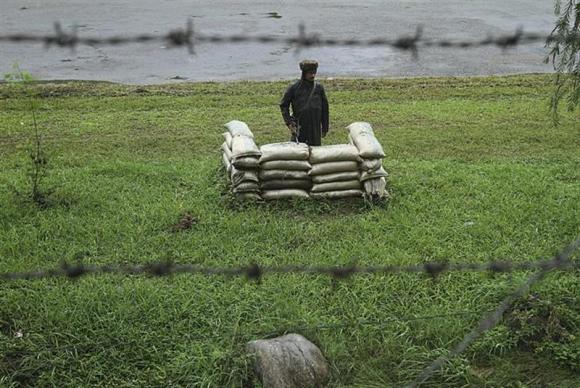
India's worries over its neighbour's consistent security breach across the border were further compounded after Indian troops discovered a tunnel dug 50 metres into Indian territory across the Line of Control on Friday.
Media reports citing sources said that the tunnel could have been made to facilitate terrorists' entry to India.
This development came hours before Pakistani forces fired at villages across the border in the wee hours of Saturday, leaving two civilians, including an eight-year-old boy dead.
Army officials said that the ground near a security post at the LoC was found caved in on Friday night, and investigations were on to confirm if there was a tunnel.
"During the patrolling of the area, Army troops found the ground caved-in at the forward area along the LoC near Chakla Post tonight," a senior Army officer told the Press Trust of India. "We are suspecting (if it is a tunnel) and physical investigation is going on in the area... It is premature to say whether there is a tunnel or not."
According to The Indian Express, the alleged tunnel is 50 metres long and runs from PoK to India.
Apprehensions over a tunnel being dug by the Pakistani side are rife given that similar cave-ins in Jammu and Kashmir last year led to the discovery of a tunnel leading up to a Border Security Force (BSF) post.
Last July, the Indian Army had found a cross-border tunnel after the ground near a BSF post in Samba district in J&K had caved in.
"After the cave-ins, the area was dug out to know the reason. But, the authorities were surprised to find a tunnel leading into Samba from the Pakistani side. The tunnel, with a dimension of 3x3 ft, was running between Chillayari BOP and Pakistan's Numberiyal BOP," an officer was quoted as saying by PTI.
The news of a new tunnel into Indian territory corroborates Prime Minister Narendra Modi's allegations that Pakistan was engaging in a "proxy war of terrorism" with India as it had lost its capabilities to fight a "conventional war".















